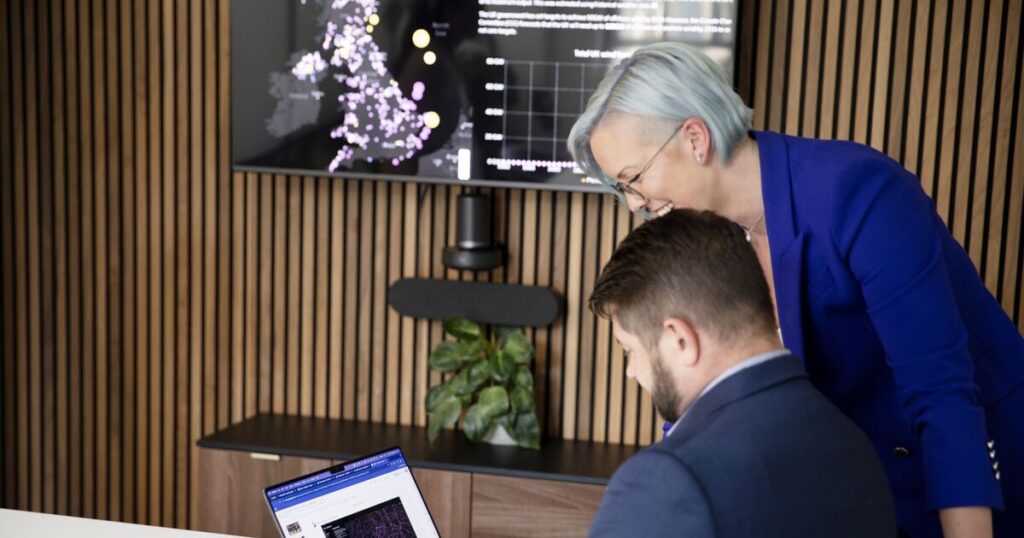
British advanced tech company Skyral is set to scale its defence and international enterprise services after securing £14.8million of backing led by European venture fund NOIA Capital. Known for its ground-breaking Artificial Intelligence technology providing bespoke modelling and simulation software, Skyral’s virtual representations answer the world’s big ‘What if?’ questions while pinpointing the impact of multiple unforeseen consequences.
In the course of figuring out what’s happening now, what’s coming next and why, its calculations simulate millions of people in real world situations that take in human behaviours, finance, smart cities, power grids, telecoms, healthcare and more. From there organisations are able to make better decisions faster, reducing risks and costs. The dual use, licensable software “is incredibly well suited to large enterprises,” declares co-founder and chief executive Jason Kennedy. “Skyral Core is the backbone of our capability and we achieve the most complex and large scale simulations ever invented.”
The latest series A funding adds to the £74million backing already in place. Coinciding with the UK’s war warnings and major strategic moves beefing up its security and armed forces, it “demonstrates investor confidence in British defence technology and its impact on European security”, say Kennedy and Skyral co-founder Naomi Hulme, its chief commercial officer.
Based on metaverse gaming technology, the business was born in 2016 from the venture arm of UK unicorn Improbable Worlds Limited (IWL). It then went on to help shape the Ministry of Defence’s first use of single synthetic environments for training personnel in virtual worlds. In 2023 it spun out of IWL and now has a team of 100 as it pursues a fast expansion strategy that saw 67 per cent growth over 2023/24 and an order book with seven years of contracted work. Among its partners are Microsoft and aerospace and cyber contractor Raytheon UK.
Future plans include a potential IPO stock market launch in 2028/29 with Skyral on a trajectory of between £1.5billion and £3billion.
To increase resilience over the past year it has diversified with 60 per cent of revenues now coming from enterprise and international opportunities. One stand-out example of this is Skyral’s tech for community good project with the government in Indonesia which is tackling the massive problem of child stunting in the country. The poor growth condition affects some 15million of under-fives and their lives to come.
The company’s AI-powered simulations tested thousands of scenarios including nutrition, education and healthcare – all predominant risk factors. Its nutritional strategies showed increased kitchen yields and food preservation times and the delivery of 1.4million more meals a day.
When the platform introduced precision placement and the right combination of permanent healthcare centres and mobile units it demonstrated that stunting could be reduced by 4.8 per cent compared to just 0.1 per cent achieved through conventional methods. The evidence can now lay the foundation for joined-up policy making. “We work hand in glove with our partners steering big projects and investment in the right direction so innovation and long-term adoption connect,” say Hulme and Kennedy. “We go far, far into the future.” www.skyral.com
 Latest World Breaking News Online News Portal
Latest World Breaking News Online News Portal






